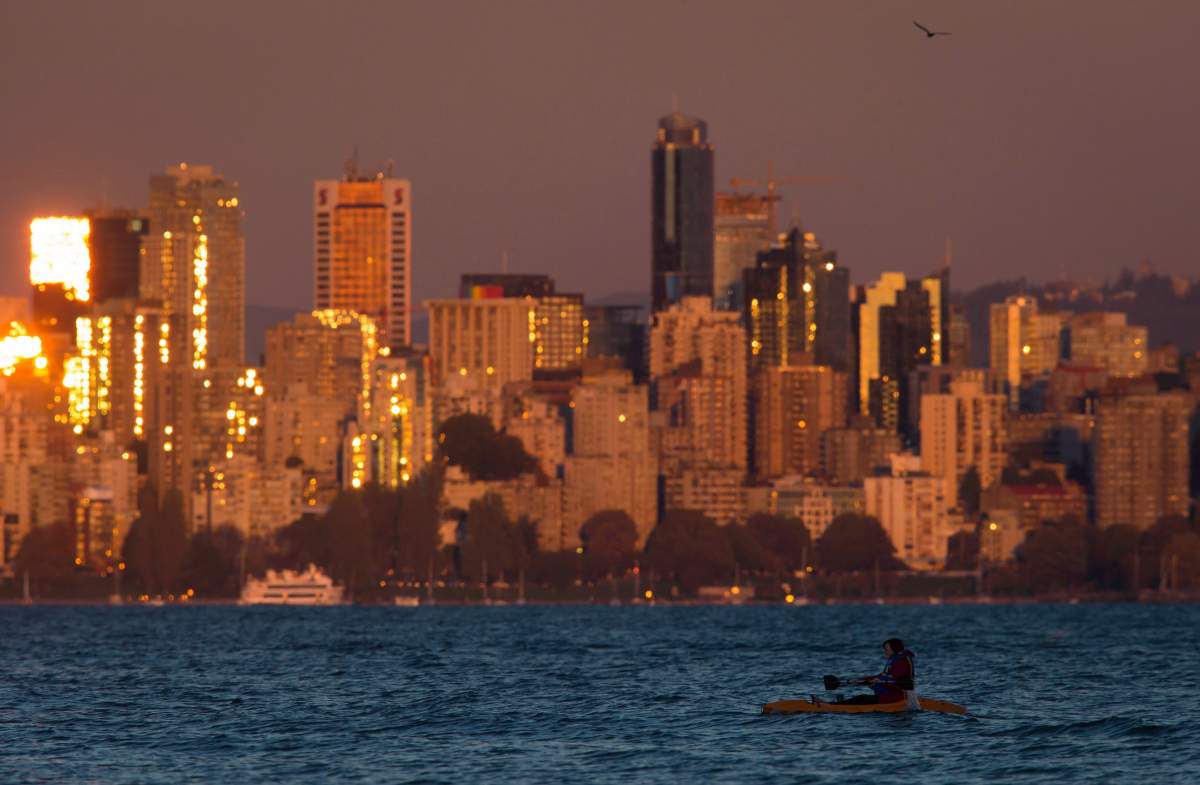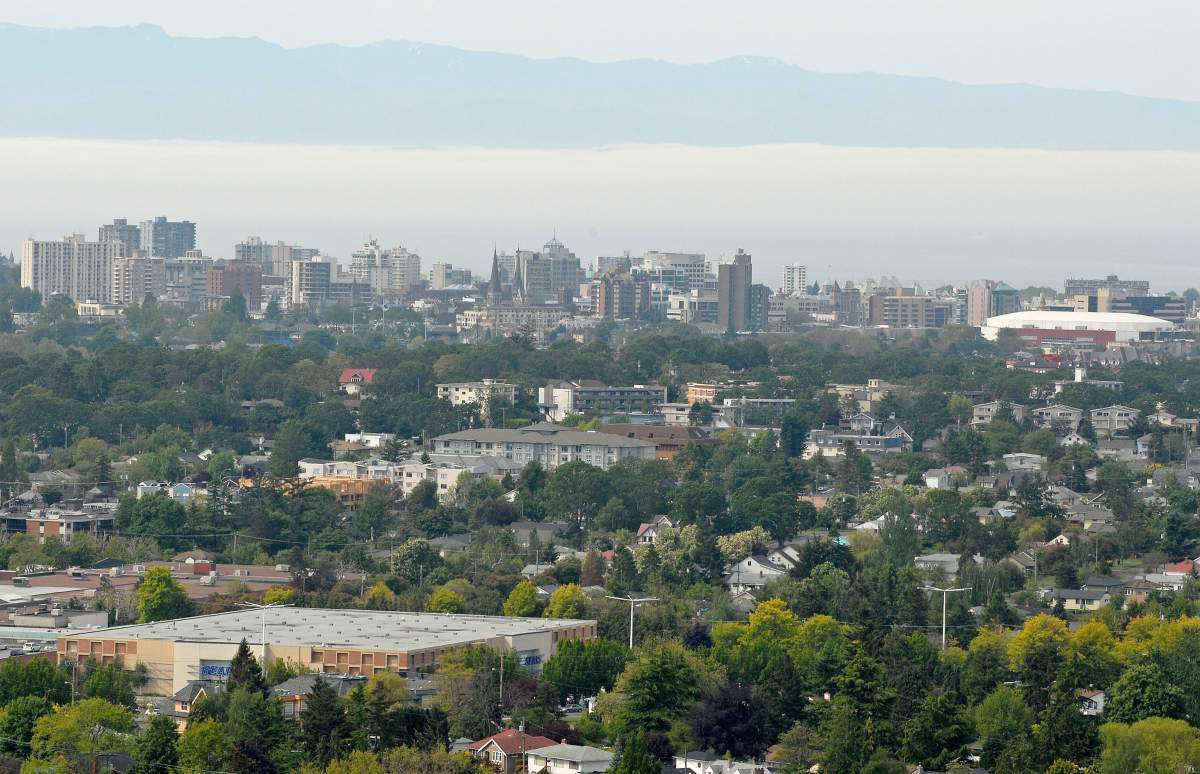On a clear day with the sun going down, Vancouver can look like a golden city as the light reflects off the glass facades of the buildings that line its waterfronts.

The golden hue is a fitting colour for a city that’s well known for having Canada’s most expensive housing.
But not only is it the priciest in the Great White North — a new report by RBC has found that Vancouver housing is now the least affordable in any market in Canada’s history.
Coverage of Vancouver housing on Globalnews.ca:
RBC economists measure affordability by looking at the price of housing and then figuring out the share of median pre-tax household income that it would take to service the cost of a mortgage.
Economists use this measure for an aggregate of housing types, as well as single-detached homes and condominium apartments.
The aggregate measure showed that Vancouverites would have needed to spend 87.5 per cent of their income to make their mortgage payments in the third quarter of 2017.

Get breaking National news
“This represents a new record high for any market in Canada,” economists Robert Hogue and Craig Wright wrote in their report.
They blamed tight demand-supply conditions in the third quarter for the trend, saying the city’s housing was “entrenched in sellers’ market territory.”
Those conditions would “continue to keep the heat on prices in the near term in the area,” they said.
READ MORE: Foreign buyers ‘not the problem’ in Canada, says CEO of Chinese overseas real estate portal
And they didn’t find much cause to be optimistic about the future.
They said that, with interest rates set to increase, “the outlook for affordability is grim.”
And any relief to come would be “unlikely to occur on its own,” they added.

But Vancouver isn’t the only B.C. city that’s struggling with affordability.
Victoria hit a record high of 61.5 per cent, marking a 7.2-per cent annual increase, second only to Toronto.
- ‘Ghosted’: Canadians stranded in Puerto Vallarta say they are abandoned by WestJet
- Parents of 4-year-old killed in Horseshoe Bay bus crash still waiting for answers
- Myles Gray was injecting unprescribed testosterone, doctor tells hearing into patient’s death
- Canadian government considers police increase in small communities like Tumbler Ridge
Worsening affordability has likely affected resales in the city, which fell almost 18 per cent year-over-year in the third quarter.
READ MORE: B.C. city now ranks among world’s top 2 luxury home markets, and it’s not Vancouver
But the report said the “risk of a full-blown derailment is low.”
“Victoria’s economy is vibrant with steady job creation and one of the lower unemployment rates of the country,” it said.
“This will continue to lend support to the housing market.”
The report came out in the same week that Statistics Canada and the Canada Mortgage and Housing Corporation (CMHC) released data showing that showed how much of the housing in Vancouver and Toronto was owned by non-residents — or people with principal residences outside Canada.
The data showed that, on average, non-residents pay more for housing than residents do, and that they veer to bigger homes.
It also showed that non-residents own 19 per cent of condominium apartments built in the City of Vancouver between 2016 and 2017.














Comments
Want to discuss? Please read our Commenting Policy first.